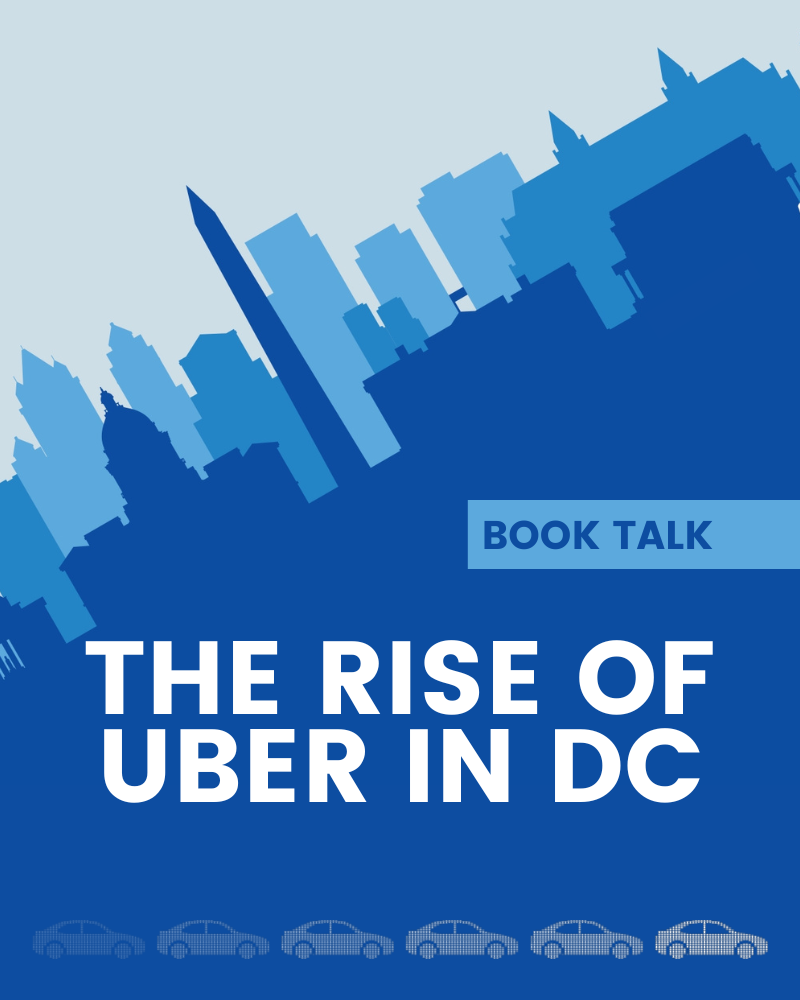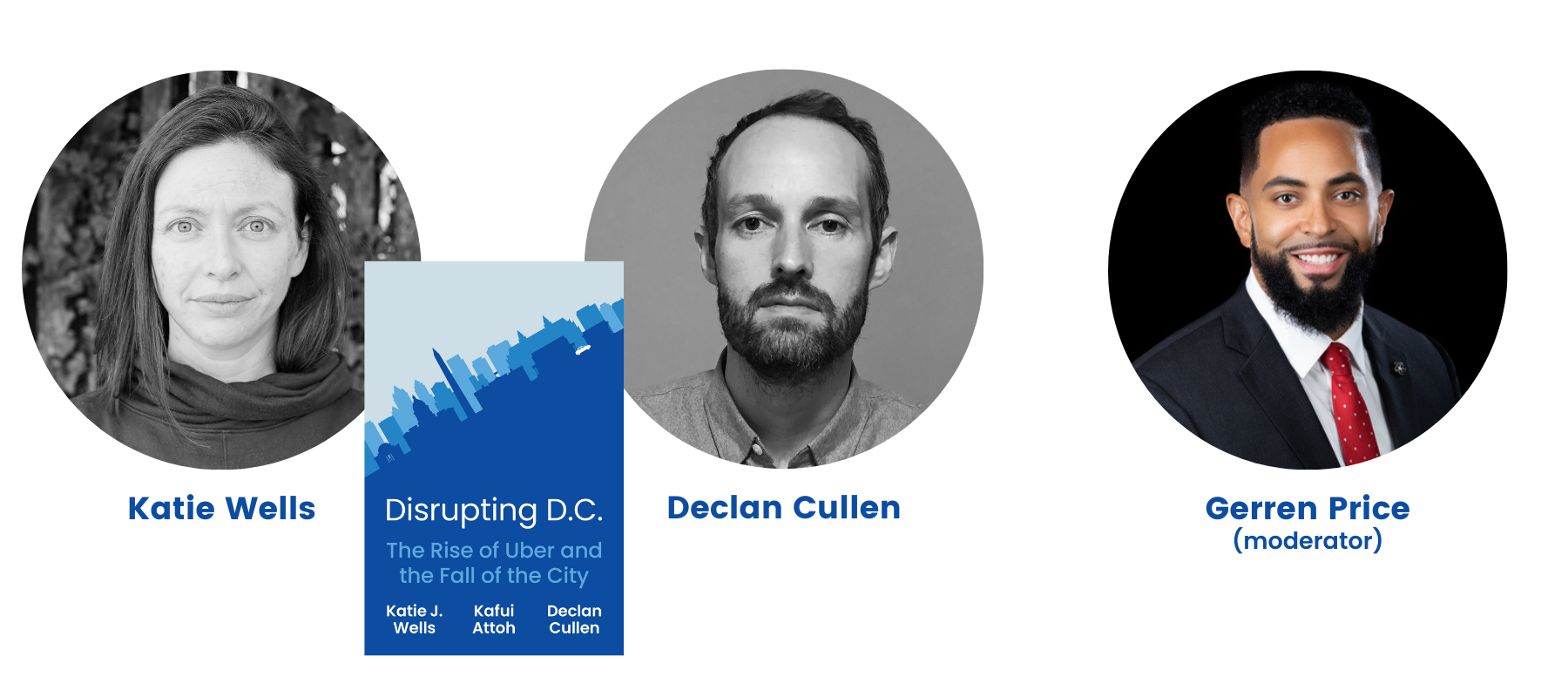
Join the DC History Center for a book talk about how Uber won Washington, DC, and at what cost for our city’s public institutions.
Across the country, gig companies like Uber appear as a solution to urban problems: underemployment, failing public transit systems, racial inequities, and anxieties about global economic competitiveness. DC was no exception.
Join us at 5 pm on Friday, February 23 with authors Katie Wells and Declan Cullen to look back at the recent history of Uber’s arrival in the District. Drawing on a decade of interviews with gig workers, policymakers, Uber lobbyists, and community organizers, Wells and Cullen explain Uber’s success not as innovation but a symptom of urban weakness and low expectations of local, city politics.
Uber was appealing to a gentrifying city—a capital city, no less, where its transit infrastructure has a long history, with a web of federal oversight, city politics, and local resistance. The streetcar, at its peak in 1919, lost ground to personal vehicles and the bus system. DC’s zone fare taxi system introduced in the 1930s wasn’t overhauled until 2008. In the 1950s-70s, urban renewal swept cars along new highways, fights against the freeways sparked grassroot response, and in 1965 debate of a rail system coalesced into Congressional approval. Decades later in 2011, amid ever-enduring transit debates, Uber appeared on the scene as an innovative but unregulated option. And it won.
Hear from the authors how Uber’s victory in DC raises questions about private companies’ role in usurping government responsibility and undercutting the value of social services. After the conversation, get your books signed by the authors. Stick around the Carnegie for Apple’s Friday evening DJ series 6-7:30 pm.
Registration for this event is free for all attendees.
Pre-registration for the event is encouraged, but not required. Capacity is limited. If you require accommodations for a disability, please email the DC History Center at programs@dchistory.org with your request at least two weeks before the program. We are committed to making events accessible for all participants. There will be photography and video taken at this event.
